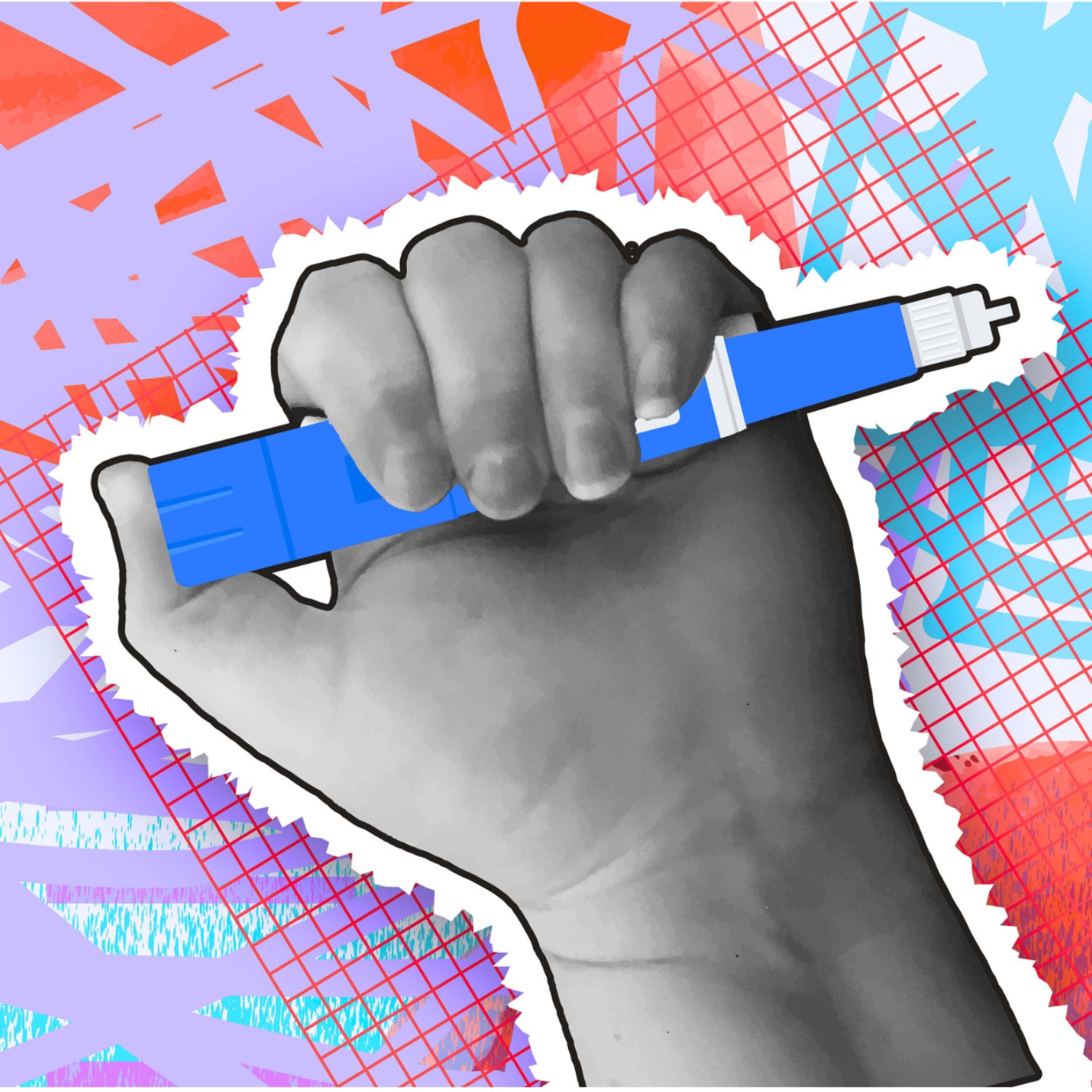The diabetes drug Ozempic and similar prescription weight management drugs, like Wegovy, are getting a lot of buzz, from millions of mentions on social media to rumors that celebrities are taking them to dramatically slim down. And that buzz means more people are taking them off-label, potentially solely to lose weight, whether they need to or not.
That focus on weight loss can be problematic for people with eating disorders or who feel pressure about their weight, a population that includes a high percentage of athletes. The drugs have brought a renewed emphasis on being thin, potentially undoing progress of the anti-diet and body acceptance movements in the last few years, and that can be triggering for those susceptible to worrying about their weight, says Evelyn Tribole, a registered dietitian with a private practice in Newport Beach, California.
“I’ve seen the rhetoric about how diets don’t work and therefore use these drugs, so these drugs have co-opted that rhetoric,” Tribole says. “If you’re really interested in health, why would you be taking something that can really injure your health in the long run?”
The injectable drugs work by mimicking the action of the hormone GLP-1, which produces insulin but also makes your body feel less hungry by slowing down your GI tract. People who take the drugs say they barely feel hungry and cannot finish big meals.
The chatter around the drugs has caused a shortage of them for people who actually need them–a huge concern, especially for people with diabetes. And they can be very pricey–more than $1,000 a month.
Side Effects of Ozempic
The drugs can have strong side effects, from nausea and vomiting to severe inflammation that can lead to hospitalization. But there are additional considerations that athletes should take before starting the drugs, says Dr. Abisola Olulade, a family medicine doctor at Sharp HealthCare in San Diego.
Because drugs like Wegovy are meant for weight management for individuals with body composition-related health complications. She says anyone considering the drugs should check with their own doctors.
1. Low Blood Sugar Levels
First of all, Olulade says, the drugs actually mimic what exercising already does to the body. When you train, it increases GLP-1, which in turn increases insulin release, leading to lower blood sugar levels.
“For someone who exercises regularly, you would have less resistance to GLP, so you could get hypoglycemic from that,” she says. “The medication has a similar effect, so when you’re taking Ozempic and you’re running, then you could have this exaggerated hypoglycemia. So you could have a worsening of that lower blood sugar effect, which could potentially be dangerous.”
2. Limited Hunger Cues and Dehydration
Another impact, she says, is that you don’t experience hunger cues on the medication, which could mean you aren’t getting enough fuel before or after your workouts.
“You have a decreased appetite, so you may not be fueling adequately with food, and hydration status also is a risk,” she says. “So you could get dehydrated, and that would be another risk that we can see with this.”
3. Kidney and Pancreatic Issues
Beyond the direct effects of the medicine, there are side effects to consider, including the potential for acute kidney injury and pancreatitis, which get worse with dehydration.
4. Stomach Pain
“Then the stomach pain, the diarrhea that you can get with it, that could also get worse,” Olulade says. “So if you’re not hydrated and you’re having loose stools, then you can get really dehydrated, which could be a problem as well.”
Those issues could lead to electrolyte imbalances and a potential increase in heart rate, she added.
What Do Experts Have to Say About Athletes Using Ozempic?
A spokeswoman for Novo Nordisk, the Danish company that makes Ozempic and Wegovy, says the company does not “promote, suggest, or encourage off-label use of our medicines.”
“We trust that healthcare providers are evaluating a patient’s individual needs and determining which medicine is right for that particular patient,” Allison Schneider wrote in a statement.
She added that the drugs have demonstrated long-term safety in clinical trials, with common side effects including nausea, diarrhea, vomiting, constipation, stomach pain, headache, tiredness, upset stomach, dizziness, feeling bloated, belching, gas, stomach flu, and heartburn.
Olulade says with advice from their doctors, athletes can take drugs like Ozempic if they’re needed.
“You do still want to take precautions, which is making sure that you’re hydrated, making sure you’re eating, making sure that you are aware that even though you don’t have hunger cues, you should still have a sense of how much you’re eating,” she says. “So that it’s enough to fuel your exercise, depending on what you’re going to be doing.”
Be sure to let your doctor know that you’re an athlete if you’re talking about taking Ozempic or Wegovy, because the doctor may prescribe a lower dose, Olulade says.
“You could potentially try a lower dose first, see how you react to that,” she says.
Tribole, who also qualified for the first-ever women’s U.S. Olympic Trials Marathon in 1984, says she would not advise runners to take the drugs for weight loss.
“If you’re taking it for intentional weight loss, I think it’s really problematic, not enough is known,” she says. “If you’re a diabetic and you’re a runner and that’s going to help your blood sugar, then, yeah, absolutely, I don’t have an issue with that. If it’s taking it for the intention of weight loss, that I think is really problematic.”
Tribole says running already masks hunger cues, at least for a few hours, so combining that with Ozempic could be especially problematic by causing injury due to a lack of nutrition. And for women runners, conditions such as relative energy deficiency syndrome.
“When you’re training intensely, that already temporarily blunts your hunger, and so now you’re adding something else on top of that,” she says.
She worries that the buzz around the drugs and how they’ll make you thin could also lead to more eating disorders, and convince runners who don’t need to lose weight to try them.
Despite these concerns, Olulade says these drugs will likely only continue to grow in popularity, and as they get more attention through celebrities and social media, more people ask their doctors about them.“We have people that call every single day requesting them and asking about them,” she says. “And so we obviously need to be better about educating people on this and also reminding people that nutrition is also important.”
She says these drugs are meant to be taken in conjunction with changes in diet and exercise.“They are authorized to be used in conjunction with nutrition and exercise as a whole,” she says. “They’re not supposed to be used just in isolation. They’re supposed to be something that is a multi-targeted approach.”
Want more of Outside’s Health stories? Sign up for the Bodywork newsletter.


